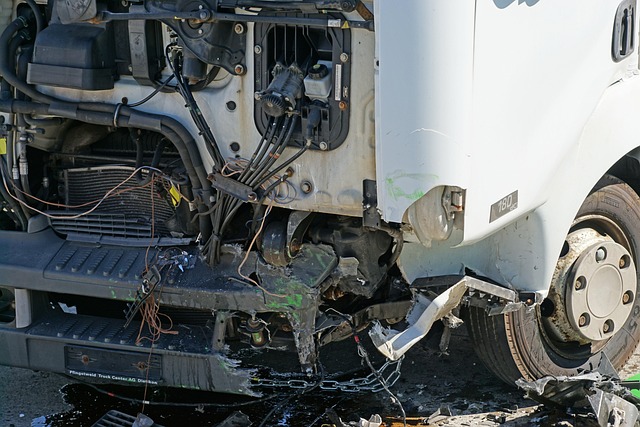Business insurance is a crucial safety net that safeguards companies from financial instability caused by unforeseen events. It offers comprehensive protection against various risks, including property damage, liability claims, worker's compensation, and business interruption. Key coverages include professional liability for negligence, employee-related policies like workers' comp and EPL, and contingency planning for disruptions like cyberattacks or natural disasters. Customizing your policy to fit specific business needs is vital, as every industry faces unique risks. Understanding what does business insurance cover empowers entrepreneurs to navigate uncertainties, protect assets, comply with laws, and maintain stability in an unpredictable market.
In today’s dynamic business landscape, safeguarding your enterprise against unforeseen risks is paramount. Understanding what does business insurance cover is the first step towards securing your financial future. This comprehensive guide delves into essential components of professional business insurance plans, from property and casualty to professional liability and cyber insurance. We explore how these policies protect against legal claims, employee-related issues, business interruptions, and even digital threats, ensuring your unique business needs are met.
Understanding the Basics of Business Insurance

Business insurance is a safety net that protects your company from financial losses due to unforeseen events. It’s not just about minimizing risk; it’s also about ensuring continuity and stability for your business. Understanding what business insurance covers is crucial in navigating today’s unpredictable market.
When you purchase business insurance, you’re essentially safeguarding your operations, assets, and liability against a range of potential risks. This includes protection against property damage or loss, legal liabilities, employee injuries, and even business interruption due to events like natural disasters or cyberattacks. What Does Business Insurance Cover? varies based on the specific policy, but common coverages include general liability for accidents or injuries on your premises, professional liability for errors and omissions, property insurance for physical assets, and workers’ compensation for on-the-job injuries.
Types of Coverage: Property and Casualty

Business insurance plans offer a range of coverage options tailored to protect different aspects of your venture. One of the most common and comprehensive types is Property and Casualty insurance. This dual coverage protects against two significant risks: property damage and liability claims.
Property coverage safeguards your business’s physical assets, including buildings, equipment, and inventory, from perils like fire, theft, or natural disasters. Casualty insurance, on the other hand, provides financial protection against lawsuits and medical expenses arising from accidents involving your business operations or premises. This includes injuries to customers, employees, or bystanders, ensuring your business is shielded from substantial legal liabilities.
Professional Liability: Protecting Your Business from Legal Claims

Professional Liability, also known as errors and omissions insurance, is a crucial component of any robust business insurance plan. It protects your company from legal claims arising from negligence or mistakes in your professional services. Whether it’s a misstatement in financial advice, an error in software development, or failure to meet contractual obligations, this coverage can help cover defense costs and damages awarded against your business.
Understanding what business insurance covers is essential for any entrepreneur. This type of liability insurance specifically addresses claims related to the quality or integrity of your work. By having it in place, you can rest assured that your business will be shielded from financial ruin should a client file a lawsuit due to perceived professional mishandling. It’s an investment in peace of mind and long-term stability for any organization.
Employee-Related Coverages: Workers' Compensation and Employment Practices Liability

Employee-related coverages are a crucial aspect of what business insurance covers, protecting against potential risks and liabilities associated with your workforce. Workers’ Compensation insurance is one such essential coverage that provides financial protection for employees who sustain injuries or contract illnesses on the job. This type of insurance ensures that medical expenses, lost wages, and even rehabilitation costs are covered, creating a safety net for both employees and employers.
Employment Practices Liability (EPL) insurance is another vital component, shielding businesses from claims related to discriminatory or unlawful hiring, promotion, or termination practices. EPL coverage helps protect against lawsuits, providing financial resources to defend against legal actions and potential damages awarded to aggrieved employees. By incorporating these employee-related coverages into your business insurance plan, you’re taking proactive steps to safeguard your company’s financial health and reputation in the event of workplace-related disputes.
Business Interruption and Contingency Planning

Business interruption and contingency planning are essential components of any comprehensive business insurance strategy. When considering what does business insurance cover, it’s crucial to understand that many policies include provisions for unexpected events that can disrupt operations. These events could range from natural disasters like fires or floods to cyberattacks or civil unrest. A solid contingency plan ensures your business can continue operating seamlessly during such disruptions.
By implementing robust interruption and contingency measures, businesses can mitigate the financial losses associated with prolonged downtime. This might involve having backup power sources, remote work capabilities, data backups, and alternative work spaces. Moreover, insurance policies often cover additional expenses incurred during this period, such as temporary relocation costs or extra staff to keep operations running.
Cyber Insurance in the Digital Age

In today’s digital era, cyber insurance has emerged as an indispensable component of comprehensive business insurance plans. As businesses increasingly operate online, they face heightened risks of data breaches, ransomware attacks, and other cybersecurity threats. What does business insurance cover in this context? Cyber insurance provides financial protection against these digital perils, helping businesses recover from incidents that can result in significant revenue loss, legal fees, and damage to their reputation. It offers a safety net by covering the costs associated with incident response, crisis management, and potential lawsuits stemming from cyber events.
Understanding what business insurance covers, including cyber insurance, is crucial for businesses of all sizes. By ensuring adequate protection against these emerging risks, companies can safeguard their operations, protect sensitive data, and maintain the trust of their customers. In a world where digital threats are increasingly sophisticated and prevalent, having robust business insurance plans that address these concerns is no longer an option—it’s a necessity.
Customizing Your Policy: What to Consider for Your Unique Business Needs

When customizing your business insurance policy, it’s crucial to consider what what does business insurance cover specifically for your unique needs. Every business is different – from small startups to established enterprises – and so are their risks. For instance, a tech startup may require robust cyber liability coverage to protect against data breaches, while a construction company will need worker’s compensation insurance to cover workplace injuries on site. Understanding these distinct needs allows you to tailor your policy accordingly, ensuring that you’re not paying for unnecessary coverage while also maintaining adequate protection.
Take the time to evaluate potential risks unique to your industry and operations. Do you deal with hazardous materials? Are there specific legal requirements relevant to your business? Consider the value of your assets, both tangible (like equipment and inventory) and intangible (such as intellectual property). Understanding these aspects will help you identify gaps in standard insurance policies and make informed decisions when customising your coverage.
